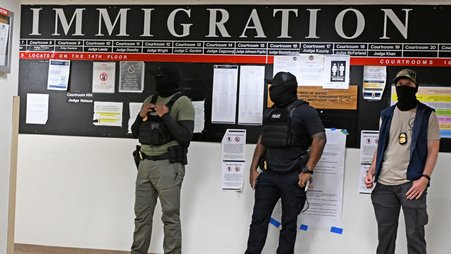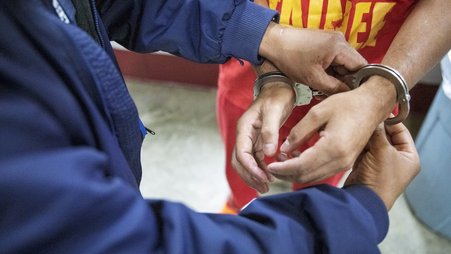
The Iowa state senate chamber, where lawmakers have recently restricted journalist access.
In a growing number of state legislatures across the country, journalists are facing new rules and proposed legislation that breaks with traditions of public access to legislators. These moves are a troubling development in the increasingly rocky relationship between government officials and the press that covers them, and should be rolled back and opposed wherever possible.
Two recent shifts were highlighted in this month's U.S. Press Freedom Tracker newsletter. In the Iowa and Kansas senates — both controlled by Republicans — legislators announced that journalists would no longer be allowed on the floor, and instead moved to a public gallery. In each case, lawmakers cited practical concerns and downplayed the First Amendment implications, but the effect has been to diminish the ability for journalists to effectively cover legislative action.
In Kansas, the Republican former president of the Senate Steve Morris objected to the move in an op-ed in the Kansas Reflector. "Placing restrictions on journalists in the Senate chamber suggests there is something to hide, or that leadership is taking unwarranted and unnecessary retaliation against reporters."
And last week, the Committee to Protect Journalists — a partner of the U.S. Press Freedom Tracker — spoke with a number of journalists about the effect of the change. Erin Murphy, the Des Moines bureau chief for the Cedar Rapids Gazette, said of the move, "When we work from the press benches on the Senate and House floors, we have direct access to those lawmakers throughout a legislative session. All these things that help inform our reporting and help our work so much better become infinitely more challenging when we’re in the upstairs gallery literally removed from those folks."
Sherman Smith, a reporter for the Kansas Reflector, told CPJ he took issue with the official explanation for the change. "I don’t know if they were trying to antagonize reporters, or if they just didn’t care about reporters. But we do know that the explanation that there are more of us now than ever before just isn’t true and the idea that it doesn’t matter because we can watch the video stream or the view from the balcony above just speaks to a fundamental misunderstanding of how we do our job."
Both journalists expressed concern that the shift would create a precedent that could be applied elsewhere — a fear that was vindicated this week as a Republican lawmaker in Utah introduced a resolution that would create similar restrictions in the Beehive State.
Following the script, Utah officials cite logistical challenges, but their explanations for restricting access hardly hold water. If there are practical concerns to allowing the journalists to effectively conduct their work on the floor of the state legislature, lawmakers should address those concerns. Hiding behind excuses like a shortage of chairs or undersized committee rooms is a bad look for the lawmakers claiming them, produces bad results for journalists just trying to do their jobs, and ultimately spells bad news for an informed public in these states.




